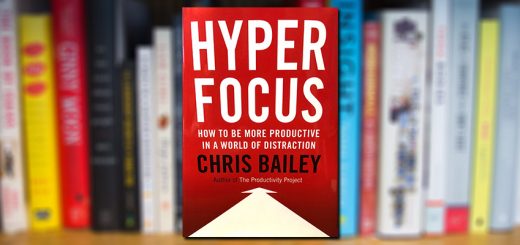Barking Up the Wrong Tree
by Eric Baker
These qualities were often negative at the mean—qualities you and I would consider “bad”—but due to the specific context, they became positives. Like Churchill’s paranoid defense of the British state, these qualities were a poison that under just the right circumstances could be a performance-enhancing drug.
Mukunda calls these “intensifiers.” And they hold the secret to how your biggest weakness might just be your greatest strength.
There’s an old Swedish expression that says most kids are dandelions but a few are orchids. Dandelions are resilient. They’re not the most beautiful flowers, but even without good care they thrive. Nobody goes around deliberately planting dandelions. You don’t need to. They do just fine under almost any conditions. Orchids are different. If you don’t care for them properly they wilt and die. But if given proper care, they bloom into the most gorgeous flowers imaginable.
… Others are orchids; they’re not just more sensitive to negative outcomes but more sensitive to everything. They won’t flourish in the dirt by the side of a road like a dandelion would. But when they’re well tended in a nice greenhouse, their beauty will put the dandelions to shame.
“A hopeful monster is an individual that deviates radically from the norm in a population because of a genetic mutation that confers a potentially adaptive advantage.”
Nature occasionally tries something very different, and if that “monster” finds the right environment and succeeds, it might just end up changing the species for the better. Again, it’s the intensifiers theory. As writer Po Bronson said, “All of Silicon Valley is based on character defects that are rewarded uniquely in this system.”
Creators exhibit more psychopathology than average persons, but less than true psychotics. They seem to possess just the right amount of weirdness.
We spend too much time trying to be “good” when good is often merely average. To be great we must be different. And that doesn’t come from trying to follow society’s vision of what is best, because society doesn’t always know what it needs. More often being the best means just being the best version of you. As John Stuart Mill remarked, “That so few now dare to be eccentric, marks the chief danger of our time.”
Research shows that very creative people are more arrogant, dishonest, and disorganized.
“When your head is in a refrigerator and your feet on a burner, the average temperature is okay. I am always cautious about averages.”
Psychologist Paul Pearson found a connection between humor, neuroticism, and psychopathy.
Often intensifiers masquerade as positives because we give successful people the benefit of the doubt. It’s the old joke that poor people are crazy and rich people are “eccentric.” Traits like obsessiveness are framed as positives for those already in the successful camp and negatives for others. We all know some who benefit from perfectionism and others who are just “crazy.”
the obsessed creative succeeds by bearing down on his or her passion projects with a religious zeal.
So one of the cautionary lessons of venture capital is, if you don’t invest on the basis of serious flaws, you don’t invest in most of the big winners.
“If you bring forth what is within you, what you bring forth will save you. If you do not bring forth what is within you, what you do not bring forth will destroy you.”
Peter Drucker, probably the most influential thinker on the subject of management, says that to be successful throughout your entire work life—which will likely span numerous jobs, multiple industries, and wholly different careers—it all comes down to exactly what Mukunda said: knowing yourself.
And knowing yourself, in terms of achieving what you want in life, means being aware of your strengths.
This is their secret: they’re not good at everything, but they know their strengths and choose things that are a good fit.
Many people struggle with this. They aren’t sure what their strengths are. Drucker offers a helpful definition: “What are you good at that consistently produces desired results?”
To find out what those things are, he recommends a system he calls “feedback analysis.” Quite simply, when you undertake a project, write down what you expect to happen, then later note the result. Over time you’ll see what you do well and what you don’t.
Modern positive psychology research has shown again and again that one of the keys to happiness is emphasizing what are called “signature strengths.” Research by Gallup shows that the more hours per day you spend doing what you’re good at, the less stressed you feel and the more you laugh, smile, and feel you’re being treated with respect.
Once you know what type of person you are and your signature strengths, how do you thrive? This leads to Mukunda’s second piece of advice: pick the right pond.
You’ve got to pick the environments that work for you . . . context is so important. The unfiltered leader who is an amazing success in one situation will be a catastrophic failure in the other, in almost all cases.
You were successful because you happened to be in an environment where your biases and predispositions and talents and abilities all happened to align neatly with those things that would produce success in that environment.
Ask yourself, Which companies, institutions, and situations value what I do?
Without an existing passion and being so eager to please, they often head in the wrong direction when they’re finally free to choose.
When you choose your pond wisely, you can best leverage your type, your signature strengths, and your context to create tremendous value.
If you’re more of an unfiltered type, be ready to blaze your own path. It’s risky, but that’s what you were built for. Leverage the intensifiers that make you unique. You’re more likely to reach the heights of success—and happiness—if you embrace your “flaws.”
A study shows that those who made a good impression got better performance reviews than those who worked harder but didn’t manage impressions as well.
Research has shown flattery is so powerful that it works even when the boss knows it’s insincere.
Eighty percent of our evaluations of other people come down to two characteristics: warmth and competence.
And a study from Teresa Amabile at Harvard called “Brilliant but Cruel” shows we assume the two are inversely related: if someone is too nice, we figure they must be less competent. In fact, being a jerk makes others see you as more powerful. Those who break rules are seen as having more power than those who obey.
Feeling powerless actually makes you dumber.
Why do jerks succeed? Sure, some of it’s duplicity and evil, but there’s something we can learn from them in good conscience: they’re assertive about what they want, and they’re not afraid to let others know about what they’ve achieved.
… it’s like the old joke about ethics. There are three categories: “right,” “wrong,” and “everybody does it.”
The quality of a society is more important than your place in that society.
The majority of successful prison gangs on record were created not as a way to further evil but as a way to provide protection to their members while incarcerated.
It’s estimated that the average pirate ship was approximately 25 percent black. Each crewmember, regardless of race, had the right to vote on ship issues and was paid an equal share. This was in the early 1700s. The United States did not abolish slavery until more than a hundred fifty years later.
“Matchers” (people who try to keep an even balance of give and take) and “Takers” (people who selfishly always try to get more and give less) end up in the middle. Givers are found at the very top and very bottom.
Research by Sonja Lyubomirsky shows that people are happier and less stressed when they “chunk” their efforts to help others versus a relentless “sprinkling.” So by doing all their good deeds one day a week, Givers make sure assisting others doesn’t hamper their own achievements.
The main reasons for the success of TFT were that it was nice, it was forgiving, it was easy for the other players to deal with, and it would retaliate when necessary.
Givers often take it on the chin in the short term, but over the long term—when they can meet other Givers and gain the protection of Matchers—their reputation becomes known, and boom. They go from the bottom of success metrics to the top.
Axelrod offers four lessons we can learn from TFT’s success: DON’T BE ENVIOUS
Just because someone else wins, that doesn’t mean you lose.
TFT never got a higher score than its counterpart did in any single game. It never won. But the gains it made in the aggregate were better than those achieved by “winners” who edged out meager profits across many sessions.
But if a person cheats you, don’t be a martyr. In the tournament, picking fights resulted in low scores, but retaliating increased scores.
You need to be able to teach the people you’re dealing with because you want the relationship to continue. You cooperate with me, I cooperate with you. You betray me, I betray you.
It’s that simple. Getting too clever muddies the waters, and the other person can quickly become very skeptical of you. Once that person sees clear cause and effect, he or she is more likely to jump on board and realize that everyone will benefit.
When you take a job take a long look at the people you’re going to be working with—because the odds are you’re going to become like them; they are not going to become like you. You can’t change them. If it doesn’t fit who you are, it’s not going to work.
It turns out that the best way to punish Takers in the workplace is good old-fashioned gossip. Warning others about Takers will make you feel better and can help police bad behavior.
Every Friday send your boss an email summarizing your accomplishments for the week—nothing fancy, but quickly relating the good work you’re doing. You might think they know what you’re up to, but they’re busy. They have their own problems. They’ll appreciate it and begin to associate you with the good things they’re hearing (from you, of course). And when it’s time to negotiate for that raise (or to refresh your résumé), you can just review the emails for a reminder of why exactly you’re such a good employee.
“[People are] always trying to discern two things: whether a potential partner can be trusted and whether he or she is likely to be encountered again. Answers to those two questions, far beyond anything else, will determine what any of us will be motivated to do in the moment.”
So what makes more sense: grit or quit? How do you know when to give up and when to hang in there?
Where does grit really come from? The answer is often stories.
This is often more insidious and less obvious in daily life. We give up, rationalize, accept our fate . . . but then occasionally wonder why we didn’t do better or do more. But we’re not always right that we “can’t do it.” Sometimes there’s a way out that we didn’t see because we gave up.
It all comes down to the stories you tell yourself. Some of us say “I’m not cut out for this” or “I’ve never been any good at these things.” Others say “I just need to keep working at it” or “I just need better tips on form.”
Optimists tell themselves that bad events are temporary (That happens occasionally, but it’s not a big deal );
have a specific cause and aren’t universal (When the weather is better that won’t be a problem);
and are not their fault (I’m good at this, but today wasn’t my lucky day).
Seligman found that when you shift your explanatory style from pessimistic to optimistic it makes you feel better and you become grittier.
The people who kept going despite the horrors were the ones who had meaning in their lives: A man who becomes conscious of the responsibility he bears toward a human being who affectionately waits for him, or to an unfinished work, will never be able to throw away his life. He knows the “why” for his existence, and will be able to bear almost any “how.”
… cognitive biases. Those are little hardwired shortcuts in our brains that help speed up decision-making. They’re usually helpful but not always rational. One example is loss aversion. Rationally, gaining a dollar should be as pleasurable as losing a dollar is painful. But that’s not how our minds work. Losing a dollar bothers us a lot more than earning a dollar makes us feel good. It makes sense; losing too much can mean death but gaining a lot . . . well, it’s nice but quickly results in diminishing returns. So evolution has wired us to fear losses a lot more than we love gains.
He needed people to not just hear but experience the fact that they can’t always trust their brains. After Ariely showed people they were capable of errors, they were open to accepting that biases applied to them too.
Our brains are wired to try to make sense of things. Meaning is part of our operating system. We need to think the world makes sense and that we have control. The brain doesn’t like randomness.
So what is meaning? Meaning, for the human mind, comes in the form of the stories we tell ourselves about the world.
For nearly every area of your life, like career or relationships, you have a story you tell yourself about it. But rarely are these consciously or deliberately constructed.
Stories are the invisible undercurrent that promotes success in a shocking number of the most important areas of life.
Researcher John Gottman realized that just hearing how the couple told the tale of their relationship together predicted with 94 percent accuracy whether or not they’d get divorced.
What’s the best predictor of your child’s emotional well-being? It’s not great schools, hugs, or Pixar movies. Researchers at Emory University found that whether a kid knew their family history was the number-one indicator.
UCLA film school professor Howard Suber describes movies as “sacred dramas for a secular society.” Just like with religious parables, we act like the heroes of the stories we tell. Studies show that when we relate to characters in fictional stories we are more likely to overcome obstacles to achieve our goals.
And then there’s happiness. Studies have shown that many people don’t feel good about their lives because they don’t see the good times as aligned with their vision of themselves. They want their lives to fit their stories, so when bad things happen they see that as consistent with who they are; the joyful moments are exceptions to be ignored.
…found that people who committed suicide often weren’t in the worst circumstances, but they had fallen short of the expectations they had of themselves.
In economics, the term “bounded rationality” basically means that human beings aren’t perfectly rational because they always have limitations, such as how much information is available or the amount of time there is to think things through. There is too much going on in the world for our little brains to process; we must distill it.
One study showed that we feel meaning in life when we think that we know ourselves. The key word there is “think.” Truly knowing oneself didn’t produce meaning but feeling one did created the results. The story doesn’t need to be accurate to be effective. That’s a little unnerving and maybe even depressing, right?
Optimists told themselves a story that may not have been true, but it kept them going, often allowing them to beat the odds. Psychologist Shelley Taylor says that “a healthy mind tells itself flattering lies.” The pessimists were more accurate and realistic, and they ended up depressed. The truth can hurt.
You weren’t “born” to do anything in particular, but when your story says you were “born” to do something you perform better and persist. After all, it’s your destiny. And this is how it connects to career.
Meaningful work is the number-one thing people want from their jobs. Yup, it beats salary and getting promoted.
As long as your story is meaningful to you, it has power. So how do you find your story? There’s a really simple way to do it: just think about your death.
Picture your funeral. The people who loved you have all gathered to pay their respects. They’re going to praise the qualities that made you so special, that they will miss the most. What do you want them to say?
Taking the time to think about that can help you find your eulogy values, which will guide your decisions.
In the famous commencement speech Steve Jobs gave at Stanford in 2005 he said, “Remembering that I’ll be dead soon is the most important tool I’ve ever encountered to help me make the big choices in life.”
When you take a little time to think about death, you become more kind and generous to others. You put aside short-term goals for a moment and consider who you really want to be.
You want to talk about “big picture” thinking? It doesn’t get bigger than this. We’re talking about stuff like fate and destiny.
Fate is that thing we cannot avoid. It comes for us despite how we try to run from it. Destiny, on the other hand, is the thing we must chase, what we must bring to fruition.
Success doesn’t come from shrugging off the bad as unchangeable and saying things are already “meant to be”; it’s the result of chasing the good and writing our own future. Less fate, more destiny.
What if you have a story that isn’t working? You think you know who you are and what’s important, but you’re not happy or getting where you want to be. It might be time to play screenwriter and take another pass at the script that is your life.
What do you do with this edited story once you have it? Play the part. A lot of psychological research shows that instead of behavior following our beliefs, often our beliefs come from our behaviors.
While his intentions are good, he comes to realize that his “fake” Nazi inspirational messages have more effect on motivating the enemy than his secret intelligence efforts do in assisting the allies. Vonnegut’s moral is that “We are what we pretend to be, so we must be careful about what we pretend to be.”
So instead of merely focusing on intentions, make sure that in your day-to-day actions you are being the main character in your perfect story.
… just a few elements can turn filling out your taxes into a fun-filled experience. One is “cognitive reappraisal,” a fancy term for “telling yourself a different story about what is happening.” You know how the baby who doesn’t want to eat suddenly opens his or her mouth when the spoon is an airplane? Yeah, we adults really aren’t that much different from toddlers. (Sorry.)
By engaging in cognitive reappraisal, and telling ourselves a different story about what is happening, we can subvert the entire willpower paradigm. Some research has shown that willpower is like a muscle, and it gets tired with overuse. But it only gets depleted if there’s a struggle. Games change the struggle to something else. They make the process fun, and as Mischel showed in his research, we are able to persist far longer and without the same level of teeth-gritting willpower depletion.
David Foster Wallace once said, “If you are immune to boredom, there is literally nothing you cannot accomplish.” In many ways, this is very true. If you never got bored, you’d be a big step closer to being a computer.
You’ve just learned what all good games have in common: WNGF. They’re Winnable. They have Novel challenges and Goals, and provide Feedback. Any time something feels frustrating, it’s probably lacking at least one of the four.
The same guy pulling the regulator out of your mouth in pool comp is there to save you if you really start drowning. Why do people fail it? Panic. They forget it’s a game. They think they’ll really die.
Research shows that a feeling of control kills stress.
Csikszentmihályi’s research showed that flow was most reliably and most efficiently produced by the specific combination of self-chosen goals, personally optimized obstacles, and continuous feedback that make up the essential structure of gameplay. “Games are an obvious source of flow,” he wrote, “and play is the flow experience par excellence.”
Research shows we often don’t do what makes us happiest; we do what’s easy. Like if we don’t feel like going out with friends, we may make ourselves, and then we have fun. We think we want to rest, but what we really want is a different type of challenge.
We crave ease, but stimulation is what really makes us happy. We try to subtract at work, do less, check out. These are signs of burnout. We don’t need to subtract; we need to add novel challenges to create engagement.
Cakes hold meaning; they show love. So when Pillsbury made the cake mix less simple—you had to add the eggs yourself—sales soared.
Goals can be intimidating. We don’t want to fail, so often we don’t set them. But if you make your game winnable, setting goals will be less scary. Failure is okay in a game. As Nicole Lazarro discovered, failure in a game just makes things more fun.
Research shows that the most motivating thing is progress in meaningful work.
“Life satisfaction is 22 percent more likely for those with a steady stream of minor accomplishments than those who express interest only in major accomplishments.”
Amabile recommends taking a moment at the end of every day to ask yourself, “What one thing can I do to make progress on important work tomorrow?”
“The price of anything is the amount of life you exchange for it.”
We all quit, but we often don’t make an explicit, intentional decision to quit. We wait for graduation or Mom to tell us to stop or we get bored. We fear missing opportunities, but the irony is by not quitting unproductive things ASAP we are missing the opportunity to do more of what matters or try more things that might.
What if you quit a few less important things and made it four hours a day? Now it’s 6.8 years. That’s the difference between starting something at twenty and being an expert when you’re forty-seven and starting at twenty and being world-class at twenty-seven. Famed researcher Walter Mischel credits his success to a Yiddish word his grandmother taught him: sitzfleisch. It means “buttocks.” As in “Put your butt in that chair and work on what’s important.”
So what’s the first step? Know your number-one priority. Then start quitting stuff that isn’t as important and see what happens. You’ll learn really fast if something really is more essential than you thought.
Research shows that when we choose to quit pursuing unattainable goals, we’re happier, less stressed, and get sick less often. Which people are the most stressed out? Those who wouldn’t quit what wasn’t working.
“You can do anything once you stop trying to do everything.”
Lucky people maximize opportunities. The study showed they are more open to new experiences, more extroverted, and less neurotic. They listen to their hunches. Most of all, Wiseman says, lucky people just try stuff. It makes intuitive sense: if you lock yourself in your house, how many exciting, new, cool things are going to happen to you? Not many.
Doesn’t trying all these things mean more bad things happen to lucky people too? Sure. But the old saying is true: “You regret most the things you did not do.”
Why? We rationalize our failures, but we can’t rationalize away the stuff we never tried at all.
So keep trying new things. It makes you luckier. If you do what you’ve always done, you’ll get what you’ve always gotten. When there’s no clear path to success, no relevant model for what you’re trying to achieve, trying crazy things may be the only way to solve the issue.
This was their system: prototype and test, prototype and test, prototype and test—until the time was up. When there is no set path, this system wins. It’s an old Silicon Valley mantra: Fail fast and fail cheap. Research shows this method of trying lots of little experiments to see what works best also works for people over four feet tall. Like you and me.
If you don’t know what to be gritty at yet, you need to try lots of things—knowing you’ll quit most of them—to find the answer. Once you discover your focus, devote 5 to 10 percent of your time to little experiments to make sure you keep learning and growing.











